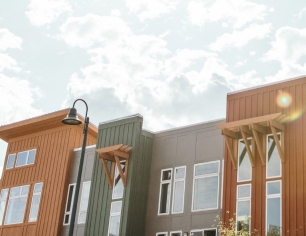How does rent to own work?
Renting with an option to buy is a way to buy a home without potentially going through a bank for a conventional mortgage. Instead, you finance the purchase directly through the homeowner. A rent-to-own agreement typically includes the purchase price, the monthly rent, and the schedule and term of payments.
Explore Progressive's editorial standards for Answers articles to find out why you can trust the insurance information you find here.
What does rent to own entail?
In some ways, renting to own is like getting a conventional mortgage, but with some key differences. A rent-to-own arrangement can generally work one of two ways: through a lease purchase contract, which is a contract that allows renters to lease a property with an option to buy it later, or with a lease option contract, which stipulates that the renter can purchase the property at the end of the lease term for a specific price.
The tenant pays a fee for the lease option, which is typically a percentage of the purchase price. With a lease-purchase contract, the renter pays a higher than market rent, with a portion of that payment going towards the purchase of the property.
What are the steps for renting to own a home?
- Negotiate a price: The first step is negotiating a price. A rent-to-own deal generally has three components: the price for the home, the upfront fee for your right to buy the house (an option fee), and the monthly rent, along with what portion of the rent will go toward the purchase price.
- Sign the contract: Once you agree on the terms of the deal with the seller, you'll sign a contract on the property.
- Move in as a tenant: When you sign a contract to rent to own a home, you become a tenant in that property (like a typical rental agreement). Also, like a standard lease, the title to the property stays with the seller. You have a right to acquire the house for a specific price on or before a certain date.
- Apply payments towards purchase: After you move in and start paying rent, a portion of your rent goes toward the principal that you may owe on the house. The big difference is that when you get a mortgage to buy a house, the title transfers to you, and the lender takes a lien against the property. If you later default on your mortgage payments, the lender can foreclose on your property.
Pros and cons of renting to own
Pros
- Helps renters with lower credit scores or limited savings to become homeowners
- Provides an opportunity to live in and test the property before committing to purchase
- Locking in the purchase price at the start of the lease can benefit the buyer if the property appreciates
- Allows renters to save for a down payment during the lease period
Cons
- May cost more than purchasing a home conventionally; there's typically an option fee, paid upfront, in exchange for your right to purchase the house later
- The interest rate is often higher than a conventional 15-year or 30-year mortgage loan
- If you default, you can be evicted just like any other tenant, and you may lose any money you've paid toward the home's purchase price
- If the seller of your home gets sued, the creditor could place a lien on your home, which may make it difficult for you to purchase the property at a later date
Discuss any contracts or risks involved with an attorney or financial professional before signing any documents.
Insuring a rent-to-own home
Your landlord or rental company is responsible for insurance on the property you're renting. However, consider a renters insurance policy to protect your assets and your possessions. Once the title transfers to you, a homeowners insurance policy is typically required by your lender if you’re financing the home. Even if your home is paid in full, homeowners insurance can be crucial to protect your assets, belongings, and the structure of your home.
Protect your new home with homeowners insurance

Online
Compare and customize your coverages and limits when you quote online.
Quote homeowners insurance online
Call a rep
Talk to a licensed representative who can help you quote home insurance.
Call 1-866-749-7436
Get a renters insurance quote online or call for advice
Learn more about renters insurance.










